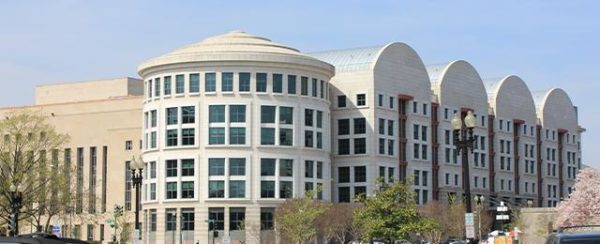
- Details
- By Native News Online Staff
WASHINGTON — A federal district judge for the District of Columbia ruled late Friday that Alaska Native Corporations (ANCs) can receive Coronavirus Aid, Relief, and Economic Security (CARES) Act funds.
In April 2020, nearly two dozen tribes from throughout Indian Country in various lawsuits sued the U.S. Department of Treasury to prevent ANCs from receiving any of the $8 billion allocated to tribal governments through the CARES Act.
U.S. District Court Judge Amit Mehta initially ruled after the filing of the lawsuits to withhold the funds from the ANCs while he deliberated on whether to allow them to share the CARES Act funds.
In Friday’s 36-page ruling, Judge Mehta says for the purposes of the CARES Act, ANCs “are ‘Indian Tribe’ and that their boards of directors are ‘Tribal governments.’”
Friday’s decision sets in motion the Treasury Department to distribute the $162.3 million set aside by the judge’s initial April ruling.
The judge was careful to point out that his decision “in no way elevates ANCs to ‘super-tribal status’ as the Confederated Tribes Plaintiffs maintain.”
“It stands to reason that Congress, in its effort to distribute emergency funds quickly to Indians under the CARES Act, intended to get those dollars in the hands of the same entities that deliver public services to Indians,” he wrote. “In the lower 48 states, those entities are largely Tribal governments in the traditional sense, but in Alaska, those entities include Alaska Native village and regional corporations.”
The National Congress of American Indians (NCAI) on Friday night expressed its disappointment in the court’s decision and issued the following statement:
“Although the Court acknowledged that Alaska Native Corporations (ANCs) ‘are not federally recognized Indian tribes but are for-profit corporations established by Congress under the Alaska Native Claims Settlement Act,’ and explicitly limited its decision to ‘the status of ANCs under [the Indian Self-Determination and Education Assistance Act] and the [Coronavirus Aid, Relief, and Economic Security Act],’ today’s decision would result in critical congressional funding intended for Indian tribal governments being diverted to state chartered corporate entities with no governance authority and no governmental duties to tribal citizens in Alaska.”
NCAI continues to believe that Congress intended for CARES Act funding to be distributed to Indian tribal governments.
There are more than 230 ANCs, including 12 regional and approximately 225 village corporations. The 12 regional corporations have more than 138,000 shareholders and operate in all 50 states and countries across the globe.
How the funds will be distributed among the ANCs was not disclosed by the Treasury Department.
The Treasury Department had not responded to an email by Native News Online for a comment as of press time.
The tribes that sued the government have not yet stated if they will appeal Friday’s court decision.
CLICK to read Friday’s decision by Judge Mehta.
More Stories Like This
Native News Weekly (August 25, 2024): D.C. BriefsZuni Youth Enrichment Project Announces Family Engagement Night and Spring Break Youth Programming
Next on Native Bidaské: Leonard Peltier Reflects on His First Year After Prison
Deb Haaland Rolls Out Affordability Agenda in Albuquerque
Boys & Girls Clubs and BIE MOU Signing at National Days of Advocacy
Help us defend tribal sovereignty.
At Native News Online, our mission is rooted in telling the stories that strengthen sovereignty and uplift Indigenous voices — not just at year’s end, but every single day.
Because of your generosity last year, we were able to keep our reporters on the ground in tribal communities, at national gatherings and in the halls of Congress — covering the issues that matter most to Indian Country: sovereignty, culture, education, health and economic opportunity.
That support sustained us through a tough year in 2025. Now, as we look to the year ahead, we need your help right now to ensure warrior journalism remains strong — reporting that defends tribal sovereignty, amplifies Native truth, and holds power accountable.
 The stakes couldn't be higher. Your support keeps Native voices heard, Native stories told and Native sovereignty defended.
The stakes couldn't be higher. Your support keeps Native voices heard, Native stories told and Native sovereignty defended.
Stand with Warrior Journalism today.
Levi Rickert (Potawatomi), Editor & Publisher

